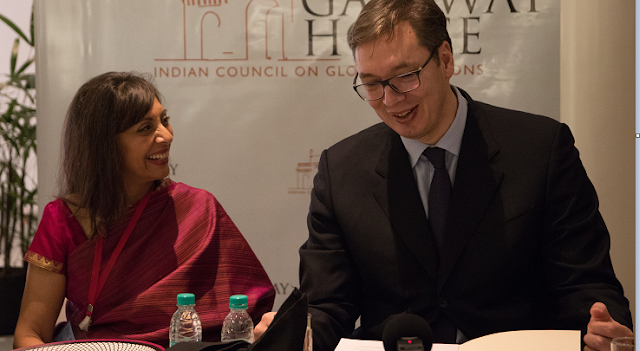New Delhi 1 March 2017: Canadian Prime Minister Candidate Dr. Raphael Louis recently joined Peaceful Mind Foundation to show his support to the children, adolescent and families with mental health. Peaceful Mind Foundation, a multidisciplinary organisation, is delicately working for the cause of mental health in India and also providing a holistic environment that fosters growth and development for all. Mental Health, an issue overlooked since long, needs an urgent attention, considering the fact that India hosts a large population in this category. Dr Nabhit Kapur Founder Peacful Mind which work in the domain of Mental Healthcare recommends everybody requires mental peace. According to WHO (World Health Organization) “Health can be defined as a state of complete mental, physical and social well-being".
About Peaceful Mind:
Peaceful Mind Foundation came in to being in July 2015 and has, in a short span of time grown exponentially, today PMF is a name to reckon with. Peacful Mind Foundation works on the Ethos" WE WONT GIVE UPON YOU" so as to empower anyone, especially those experiencing Psychological health problems , emotional turmoil , adjustment issues & concerns and it's endeavor is to make it(Psychology) a household name far and wide , without any stigma or prejudice.
Peacful Mind Foundation team is passionate and driven about mental wellbeing and Psychology and it boasts of a fine team of highly accomplished Psychologists, counseling Psychologists and Therapists on our directory, who are diligently helping out people in large numbers across all ages.
IT caters to anyone and everyone in society and also extends to professionals who wish to enhance, add to or hone their skills in the field of Psychology, Counseling, Psychometric testing, Therapy, Child Psychology etc.
Peacful Mind Foundation has a very fine global outreach to many countries such as Dubai , Sri Lanka Maldives, Malawi, Jordan, Kenya and etc. our ties with these nations are only strengthening with each passing time.
About Dr Nabhit Kapur
Dr. Nabhit Kapur, 28yrs old, Consultant Psychologist is a very common and famous name in the field of psychology in UAE, Jordan, Sri lanka , Africa and others. He is the founding member of Peacful Mind Foundation in India with a vision to create mental happiness and psychological wellbeing in the world.Dr. Kapur has completed BA (Psychology) from Amity University, Noida & MS (Psychotherapy) from Institute of Behavioral and Management Sciences, Masters in psychology from Kalinga University and Psy.D in neuroscience and psychology from AIU, USA with the mission to promote psychology as a household term, Train as many people in to become ambassadors of mental happiness and well-being, to provide Device strategies for individual and group well-being and De-stigmatize the society regarding the concept of counseling and therapy.
Followed by the specialization in Anxiety Counseling, Behavioral Problem in Children, Divorce Counseling, Marriage Counseling, Behavior Therapy & Counseling, Depression Counseling, Family Counseling and etc. He received many awards in this field, the most recent being the Honorary doctor in philosophy by International royal academy of United Nations, Innovation in education excellence by Delhi Deputy CM , Best psychologist in 2016 and many others across globe.
















